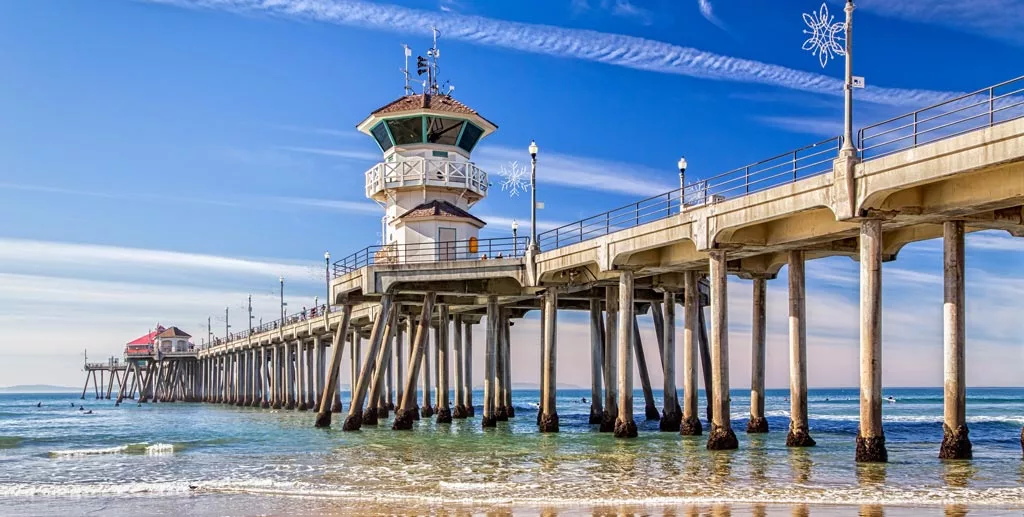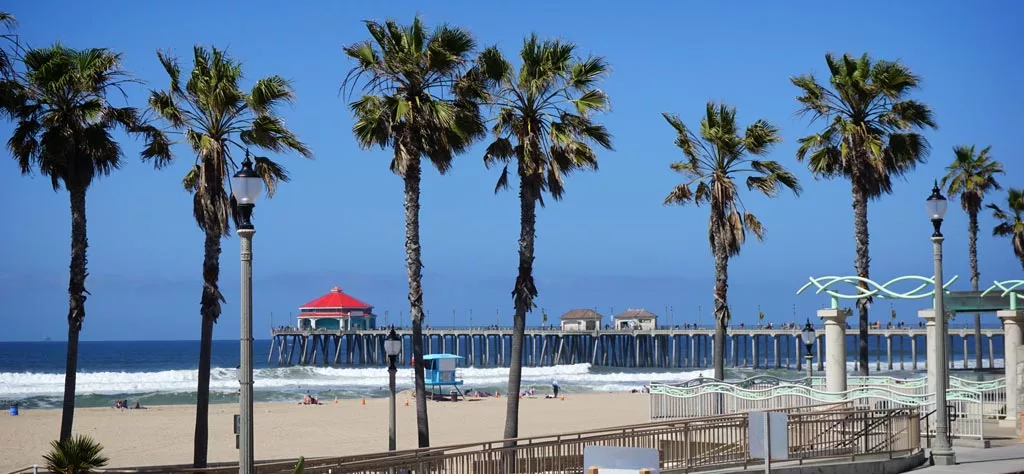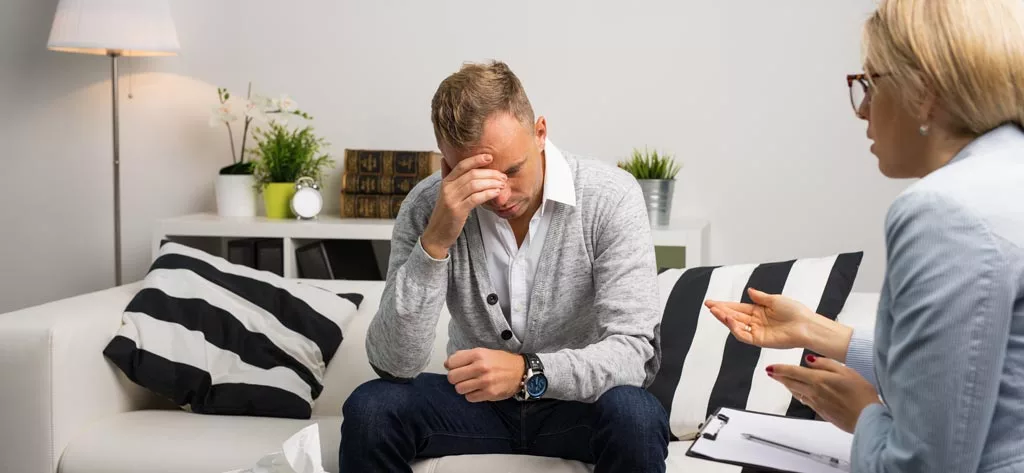Drug and Alcohol Addiction Solutions for Huntington Beach Residents and Beyond
Lovingly known as “Surf City” to those familiar with the area, Huntington Beach is one of the most famous and history-making cities in all of American culture. The beautiful 10 miles of sprawling beachfront is home to some of the most remarkable surfing conditions in the United States – earning this town its famous nickname.
From the free-spirited, fun-loving personality of the surfer crowd to the anti-authority, in-your-face attitude of the skateboarders, the culture left its mark on Huntington Beach one more than one way – and not all of them were positive in nature.
Substance abuse has been steadily affecting Huntington Beach over the years and is currently at probably the worst point it’s ever been. The need for treatment centers to help is where our drug rehab Huntington Beach services come into the picture!
In this article, we highlight the growing concern of substance abuse in Huntington Beach and Orange County and show you how places like South Shores Recovery are working night and day to make a difference in the well-being of the community.
An Overview of Substance Abuse In Huntington Beach
Huntington Beach put surfing on the map in the United States, helping to bring the sport to the masses and mainstream media. Later, “Surf City” would go on to become ground zero for the then-unprecedented sport of bowl skating, which would end up being the infancy to the vert ramp and much of the street-style skating that’s so popular today.
This puts Huntington Beach high on the list of pioneer cities – especially when you consider the fact that skateboarding is now officially an Olympic sport. Both pastimes are still in full swing in Huntington Beach, but unfortunately, so is drug and alcohol addiction.
The Flood of Synthetic Opioids in America
The number of drug overdoses in the US increased during the pandemic. Although the prevalence of substance abuse worsened, many people who were struggling with drug or alcohol abuse in Orange County who were affected by the condition were not willing to seek treatment.
Some factors that may have contributed to this include the COVID-19 restrictions that restricted mobility and made people feel anxious about being around other individuals in substance abuse treatment programs. Fentanyl, which is a synthetic opioid, is up to 300 times stronger than morphine and 50 times more powerful than heroin and is currently taking a toll on Huntington Beach and Orange County as a whole.
The high concentration of fentanyl makes it incredibly dangerous for users. A single dose can trigger a deadly overdose. In Orange County, people who are using fentanyl as their main drug are more prone to developing a problem.
Finding Help at Effective Drug Rehab Centers
There are various risk factors that can affect the development of drug addiction. The right mental health and substance abuse care through drug and alcohol rehab centers can help mitigate these risks, but awareness must be increased.
Hispanics and Asians are at lower risk than other ethnicities. African Americans, on the other hand, are somewhere in the middle. Local factors such as proximity to hospitals and other elements are also contributing factors to the rise of drug overdoses.
According to data, the mortality rate in various cities in California, such as San Diego, Seal Beach, and San Clemente, is higher than that in other counties. This data points to a trend that moves directly along the coastline of California – and this includes Huntington Beach.
If someone has a substance abuse or mental health disorder, there’s only one reliable course of action that secures your chances of experiencing successful recovery.
Take a Step In the Right Direction In Huntington Beach
If you’re suffering from a mental health disorder combined with a substance abuse issue, it’s difficult to see the light at the end of the tunnel. It’s important that you take the right steps toward healing from substance abuse. This is done through the right approach toward mental health at the appropriate addiction treatment centers.
Treatment programs are available for a wide variety of Huntington Beach, CA residents. The following section outlines the most effective journey toward recovery in Orange County.
Huntington Beach Drug and Alcohol Rehab Centers: Move Toward Recovery
Your body will become dependent on alcohol and drugs (even prescription drugs) as these substances alter the pathways in your brain. When you stop using these substances, your body will start to rebel. The use of illicit substances can lead to various dangerous consequences.
Detox
It is important that you get the help and supervision that you need to ensure that you are safe while going through a drug detox program in Huntington Beach. Our facility’s experienced clinical staff will help you navigate the process and ensure you are getting the best possible care.
We will also provide you with medication that will help you get through the process. Getting clean and sober is the first step in the recovery process, and we are here to help you along the way. Unfortunately, starting a recovery program can be very challenging, especially after using illicit drugs and alcohol.
It’s during detox that most people fail at their attempts at recovery. We will also prepare you for the next stage of inpatient treatment while keeping you comfortable. However, removing the substances that have prevented you from successfully completing the program is important, so detox should never be attempted at home.
Determining Your Level of Care During Our Treatment Programs
South Shore’s treatment programs are designed to provide the most comprehensive care possible for those struggling with addiction. Each client is assessed and evaluated based on their individual needs and goals, and our admission coordinators work with them to develop effective interventions.
Your admission process begins with a personal assessment, where we talk about your experiences and develop a personalized treatment plan. During the evaluation, we will also ask you questions about your past use and recovery support.
Inpatient Treatment Huntington Beach, CA
During inpatient (also known as residential) treatment programs, clients have access to a variety of different therapies, in addition to other options like group therapy, nutritional, and even 12-Step program options. It’s during these treatment programs that clients will experience the majority of their healing from addiction.
Inpatient is meant to be the most robust and comprehensive treatment option of all. Clients enter the facility for 30, 60, 90, or 120 days, remaining at the facility until their residency is over. At this point, clients will opt to take part in a different level of care to continue their regimen of therapy.
Outpatient Treatment Programs In Huntington Beach
The various benefits of seeking treatment at our facility in Huntington Beach are many, assuming it’s the right level of care for you.
Making the decision to seek help for an addiction can be mentally and physically beneficial. Outpatient treatment must be conducive to your recovery and not detrimental – it takes a strong support system to remain proactive in your approach, especially during the initial stages of your sobriety.
Many Huntington Beach addiction treatment services offer programs that have multiple forms of outpatient treatment, including intensive outpatient, partial hospitalization, and more.
Intensive Outpatient Treatment Programs In Huntington Beach
South Shore’s IOP (intensive outpatient programs) and overall outpatient services provide the same level of care and attention that clients would receive in residential treatment. Clients are assigned an individual treatment plan based on their unique needs and goals after they have been admitted.
The treatment plan is customized to meet the individual’s needs based on their current recovery process and goals. IOP programs also feature activities that are designed to help patients develop their coping skills and improve their communication.
The Real World Support You Need to Succeed
The program’s goal is to help clients develop real-world skills to help them manage their various issues. As they interact with other people in the community, they can discuss their problems with counselors and therapists. This allows them to apply what they are learning as they get home.
IOP treatment programs are normally scheduled for 9-12 hours per week, with the time spread out between three days. The difference is that standard outpatient normally only requires five to six hours weekly.
Partial Hospitalization Treatment Programs In Huntington Beach, CA
South Shore Recovery’s team members are dedicated to providing comprehensive treatment and support services to individuals suffering from mental health issues. Their PHP care plan includes a variety of activities such as group therapy, individual sessions, and a psychiatrist or nurse practitioner’s visit every week.
PHP patients can choose between virtual and hybrid options. South Shore’s facility is designed to provide a safe and comfortable environment for those who need help. Through our program, clients can develop new coping skills and use them away from the regular hospital setting. As with other chronic medical conditions, the treatment plans of patients are carefully monitored.
The Meeting Point of Flexibility and Accountability
The facility’s care plans and treatments are updated weekly with the help of patient input, and adjustments can be made if needed. South Shore’s approach to addiction recovery is centered on caring for the entire person and incorporating various care steps that can improve their well-being.
Through our Partial Hospitalization Program, South Shore’s clients can receive the necessary tools and resources to succeed outside of a regular hospital setting. Patients are also included in our weekly support group sessions.
What are the specific forms of therapy available at South Shores that clients participate in directly? Our Huntington Beach, CA, treatment centers provide a large variety of options for all clients, depending on the recommendations of your personalized treatment plan.
Dual Diagnosis Treatment and Types of Therapy Offered
The following list contains many of the types of therapy you’ll find at our alcohol and drug rehab in Orange County, convenient to the Huntington Beach, CA area. It’s worth noting that clients may experience several forms of therapy while engaging with inpatient or outpatient programs at South Shores.
Cognitive Behavioral Therapy
A cognitive behavioral therapy program is focused on developing a framework that aims to help individuals manage their psychological problems. It involves using various cognitive behavioral techniques to help them develop effective coping strategies and avoid harmful thinking patterns.
It also teaches participants how to manage their own situations and develop self-confidence. This type of therapy focuses on the present instead of the past. This helps individuals overcome their negative thinking patterns, which can help prevent self-medication through illegal and prescription drug abuse.
Individuals suffering from mental health issues and powerlessness often develop negative thinking patterns that are linked to their addiction to drugs and alcohol. With CBT, they can explore these patterns and develop healthier alternatives to damaging behaviors like prescription drug abuse.
Rational Emotive Behavioral Therapy
Rational emotive behavior therapy is a form of treatment similar to cognitive behavior therapy. It helps individuals identify their negative thoughts and beliefs and develop effective strategies to prevent or overcome their harmful and self-defeating habits.
Although the main difference between these two is that the former focuses more on the individual’s belief system, while the latter involves replacing irrational and faulty ideas with ones that are based on logical reasoning.
Motivational Therapy
A motivational interviewing technique is a type of counseling that aims to motivate a person to maintain n sobriety. It involves identifying their own values and motivations.
Through motivational interviewing, people can realize their desire to get sober. Essentially, it helps them find their “why,” allowing them to develop their own organic reasons for seeking addiction treatment.
A collaboration between the client and the counselor facilitates this type of counseling. It allows the client to make decisions for themselves and helps promote long-term recovery.
Family Therapy
A couples’ rehab or family therapy program is designed to help individuals dealing with substance abuse issues and related problems. It can also address issues related to the family unit with the help of a mental health professional.
The treatment focuses on the effects of an individual’s family relationships on their behavior and actions.
It’s usually conducted for all family members, including the extended family. It can help individuals develop better relationships and address various issues that can affect their behavior. This form of therapy is very powerful and can help establish the right pillars of support heading into the post-treatment segment of recovery.
EMDR Therapy
Individuals who have experienced a traumatic event may resort to substance abuse to cope with their feelings about the incident. EMDR, or Eyes Movement Desensitization and Reprocessing, helps to relieve clients of these traumatic events.
The concept of EMDR was first developed during the 1980s to treat individuals suffering from PTSD. It can be used to treat individuals suffering from substance use disorders and trauma. Through the process of eye movement desensitization and reprocessing, clients can process their traumatic memories and emotions. It helps them develop positive beliefs about their experiences.
For example, instead of a client feeling like their trauma has broken them down – they may reaffirm that it’s making them stronger, allowing them. to emerge on the other side a better version of themselves. This form of therapy is an excellent coping mechanism that allows clients to finally deal with past trauma.
Person-Centered Therapy
Person-centered therapy is a type of treatment that focuses on the individual instead of the substance abuse that caused it. It involves using the principles of self-acceptance and shame to help people transform their lives.
]It involves regular meetings with a therapist or counselor, who helps the client establish a stable and balanced environment.
Through this therapy, the client can develop a deeper understanding of themselves and begin to accept and reflect. It can be very empowering for individuals who are struggling with addiction or substance abuse.
Which Therapy Is Best for Me?
This question depends heavily on the results of your personalized treatment plan. Each form of therapy is based on a certain mental health issue at the center of a substance abuse disorder.
Some of these forms of therapy are better served for PTSD, while some are more appropriate for anxiety or panic disorders. Regardless of which therapy you opt for, there is an important element to always keep in mind.
Throughout the duration of your stay, it’s important to plan for your post-treatment. This is when you’ll enter the real world again, but the chances of relapse are high initially. Use the tools you’ve learned in therapy and rely on your support pillars.
Work with your counselor or therapist on developing your support structure if you don’t already have a plan for one. For many, attending a group after exiting inpatient or outpatient is the best course of action. A 12-Step Program meeting goes a long way when it comes to holding yourself accountable and surrounding yourself with struggling peers like you.
Your Destination for Recovery, Convenient to Huntington Beach
If you’re in the Huntington Beach, CA, area and seeking a powerful and effective facility to help usher you toward recovery, South Shores Detox has an expert staff that’s dedicated to your success.
For more information on entering our program, contact a member of our admissions team today for a confidential consultation today!





